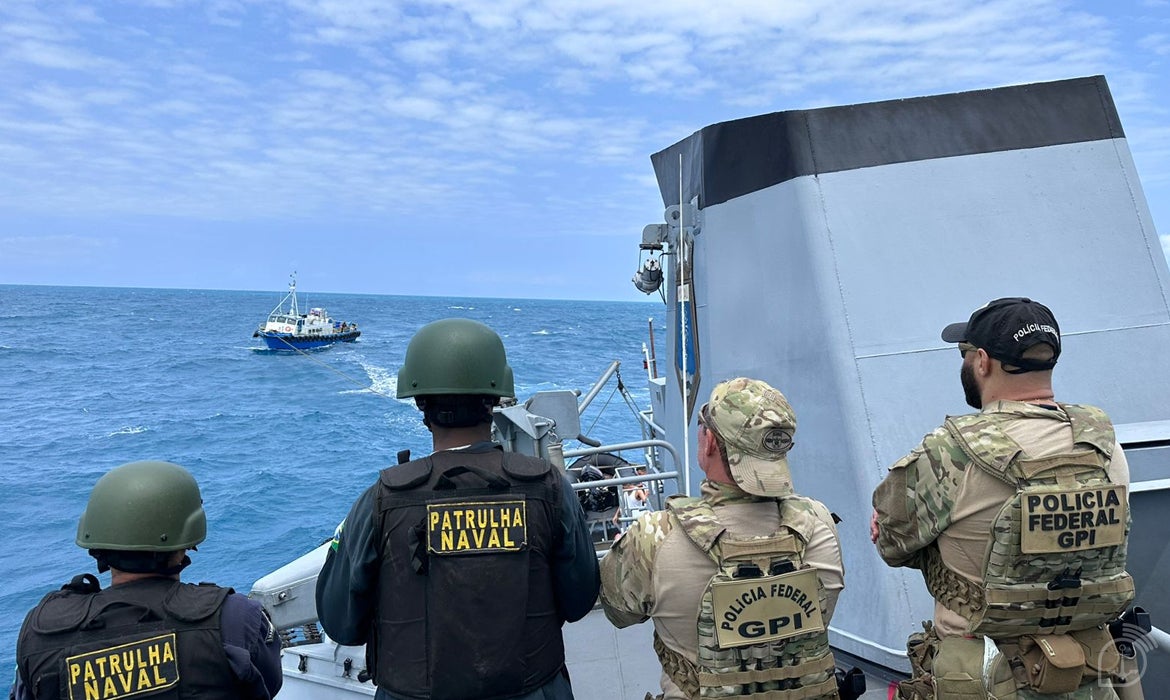
The Brazilian Navy and Federal Police seized 3.62 tonnes of cocaine off the coast of Pernambuco, northeast Brazil, on Tuesday 19 September.
According to the Brazilian Navy’s press release, the mission marks Brazil’s largest offshore drug capture. It is part of the so-called Operation Agata Nordeste, a crackdown on cross-border and environmental crimes.
The shipment, stored aboard the Palmares 1 vessel, was apparently bound for Africa. Naval officers arrested the five crew members on board, who could face up to 35 years in prison on international drug trafficking charges.
Following the cocaine capture, the Palmares 1 was towed to the Port of Recife by the 500-tonne Brazilian Navy Patrol Vessel.
Patrolling the Blue Amazon
The Brazilian Navy is responsible for monitoring a vast maritime area. Known as the ‘Blue Amazon’, its jurisdiction covers more than 5.7 million square kilometres of waterways.
It is unsurprising that illegal fishing, smuggling and drug trafficking are common practice in the area. Since 2020, the Brazilian Navy said it had seized more than 17 tonnes of cocaine, 15.7 tonnes of marijuana, 4.3 tonnes of hashish, 695 tonnes of cigarettes, as well as 113 tonnes of fish and 3,146m³ of wood.
This crackdown comes amid increased job hirings in the Brazilian defence sector, which have increased by 72.8% since the start of the year.
Naval and defence spending has also increased. In 2023, Brazil’s defence budget is estimated at $23.8bn by GlobalData’s ‘Brazil Defense Market Overview (2024-2028)’ report. This is expected to grow at a CAGR of more than 4% between 2024 and 2028.
The impetus of this defence spending has shifted from previous President Bolsonaro to current President Lula.
Under Bolsonaro, a far-right populist and ex-military officer, promises to stamp out drug trafficking fell short despite shoot-to-kill policing tactics, while environmental degradation ran rampant.
Lula is redirecting defence funds to military patrols of Brazil’s extensive environmental spaces – on land and water.
Brazil’s internationally infamous drug gangs continue to operate, but their role in illegal deforestation and other ecologically damaging activities has diminished, with a 33.6% reduction in Amazonian deforestation since Lula’s presidency began in January.
Our signals coverage is powered by GlobalData’s Thematic Engine, which tags millions of data items across six alternative datasets — patents, jobs, deals, company filings, social media mentions and news — to themes, sectors and companies. These signals enhance our predictive capabilities, helping us to identify the most disruptive threats across each of the sectors we cover and the companies best placed to succeed.






